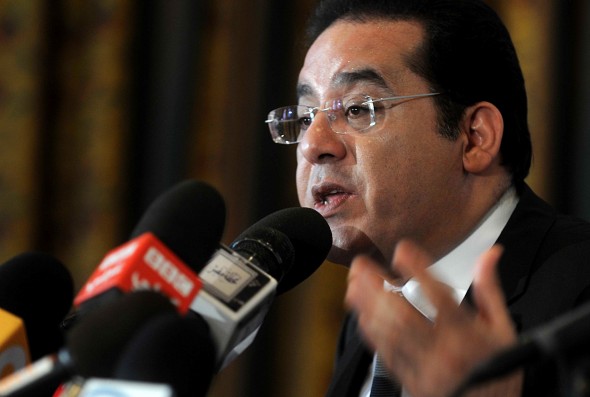I must confess that I arrived at United Nile Reggae (UNR)’s second Cairo Jazz Club performance on Tuesday night curious but clueless about the capital’s reggae scene.
Reggae, despite its Jamaican birthplace, is originated in a heritage that goes back to traditional African folk music and has recently come full circle in South Africa, West Africa and Ethiopia, where the genre is hugely popular.
However, reggae is still in its nascent stages in Cairo. As one of two bands currently on the circuit, in a sense UNR holds the chalice for creating an Egyptian reggae subgenre. My cautious optimism was, hence, partnered with apprehension that UNR could slip into the heap of average cover bands that dominate live music venues these days.
The pioneers of reggae music used the form as an expression of their Rastafarian faith. In a wider sense though, reggae sends out a message of love and affection as well as the importance of revolting against oppression.
Since Bob Marley put in on the main stage, roots reggae has been sampled, twisted and imbued with local flavor, forming the genre known as dub.
UNR have created their own cocktail of roots reggae, blending classic tunes with French hip-hop, sufi style vocals and a djembe-percussion cherry on top.
The theme of uniting against government oppression is now translated back into the context of Africa itself, expressed in Ismail Wally’s French rap, which cleverly rhymes about corruption within African governments, religious conflicts and even brings the Palestinian/Israeli conflict into the mix.
The French hip hop element is particularly successful for its shared themes with reggae – rooted in the African community in French suburbs, the lyrics express similar frustrations born from minority discrimination, government mistrust and the history of African slavery.
The dominating message, as the band’s name suggests, is unity, personified by the group members: formed of Egyptian and Sudanese musicians, they bring together a range of musical experiences to create a unique interpretation of North African reggae. The idea of unity extends to the African continent, race, music and religious differences.
In fact, when asked about how they reconcile their own Muslim beliefs with the Rastafarian faith (which is inseparable from reggae), Youssef and Khaled Saad, the two vocalists, explained that they are able to empathize with Rasta beliefs, even to the point of praising Jah, the Rastafarian god, in their music, because God transcends religion.
Saad referred me to the artist Alpha Blondy’s lyrics in “God Is One : “Some call him Allah/ Some call him Adonaa/ Some call him Jehovah/ Jesus, Hiave, Buddha, Krishna/ But he is one.
The message reggae is sending out is being absorbed and transformed globally. UNR are adapting reggae to their religion and their own concept of revolution. Ismail Wally aspires, through music, to spur thinking outside the system that people are educated and governed by, a mental revolution if you will.
But we were, after all, in the setting of the Cairo Jazz Club. Fuelled by a good buzz, the crowd was looking, first and foremost, to be entertained.
The band was eager to oblige. Enjoying the music and having fun with the audience seemed just as important to them as expressing the revolutionary messages within the songs.
Songs about love and friendship, such as “Waiting in Vain and “Jammin by Bob Marley featured just as prominently as politically-centered tunes. Even “I Shot the Sheriff was sung with celebration and joy as the crowd joined in, infusing politics with pleasure.
My hopes that the Rasta contingent of Cairo might make an appearance quickly faded. The Jazz Club is where Cairo’s immaculately turned out elite come to play, and Tuesday night was Reggae Night. The mixture of loyal fans, friends of the group, expatriates and tourists ironically bopped and bounced to tracks regarding discrimination and oppression, far removed from their personal experiences.
As the music permeated warmth through the venue like good medicine, one could feel the starch in the crowd’s dry-cleaned shirts softening and their stiff cool gradually giving way to the leisure-inducing sounds of syncopated reggae guitar.
UNR is still rough around the edges – their harmonies are not consistently precise and they are yet to take full advantage of their unique position as Egypt’s pioneering reggae artists. However, their novelty and desire to experiment on stage makes them endearing and fun to see.
They impressively work the crowd together, careful to mix covers with originals, and make the music central to the evening; a tough job in a nightclub using a genre that is still unfamiliar to Cairo’s live music circuit.
For more about UNR, visit their MySpace page www.myspace.com/unitednilereggae or search for their Facebook group.

